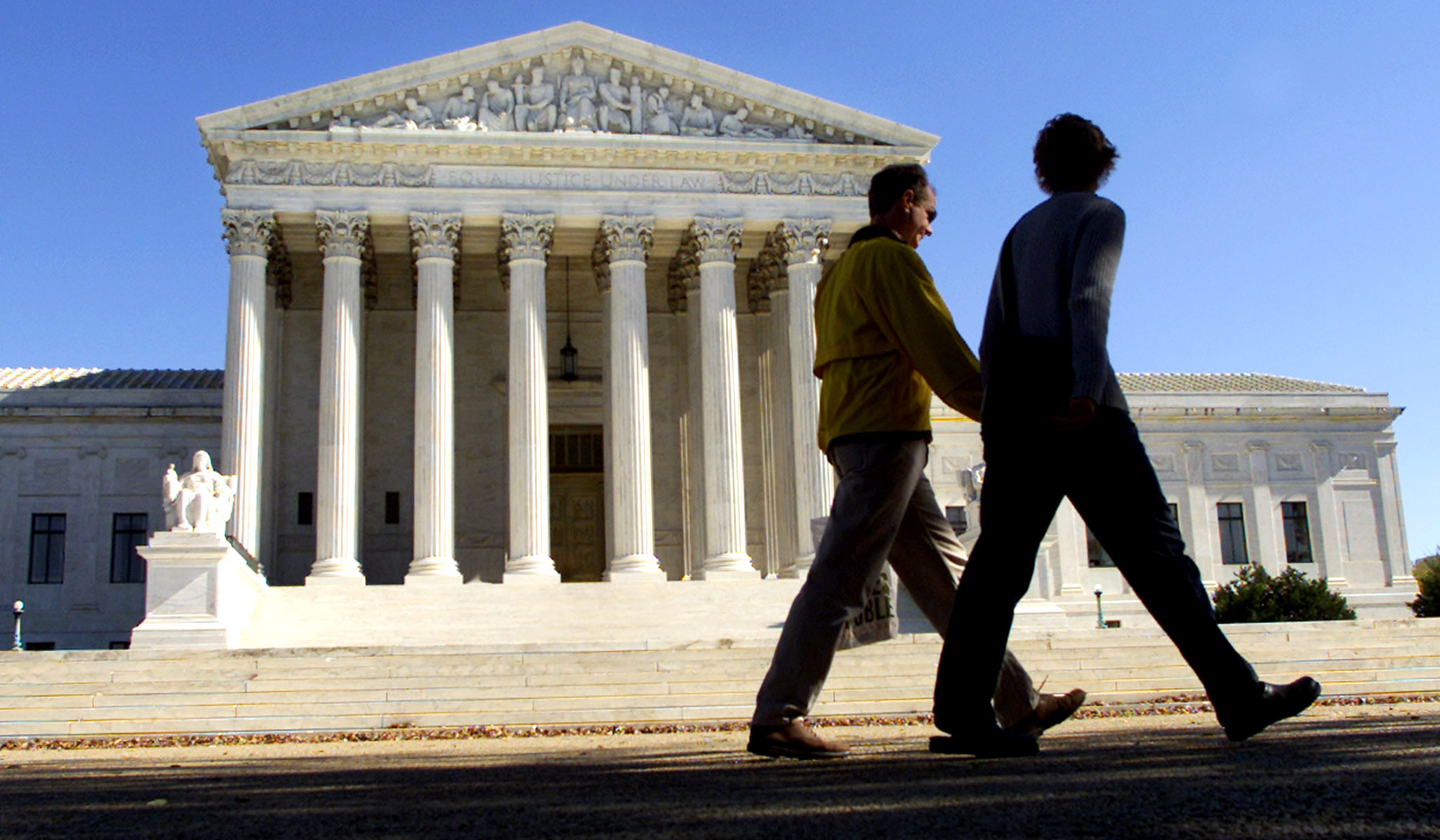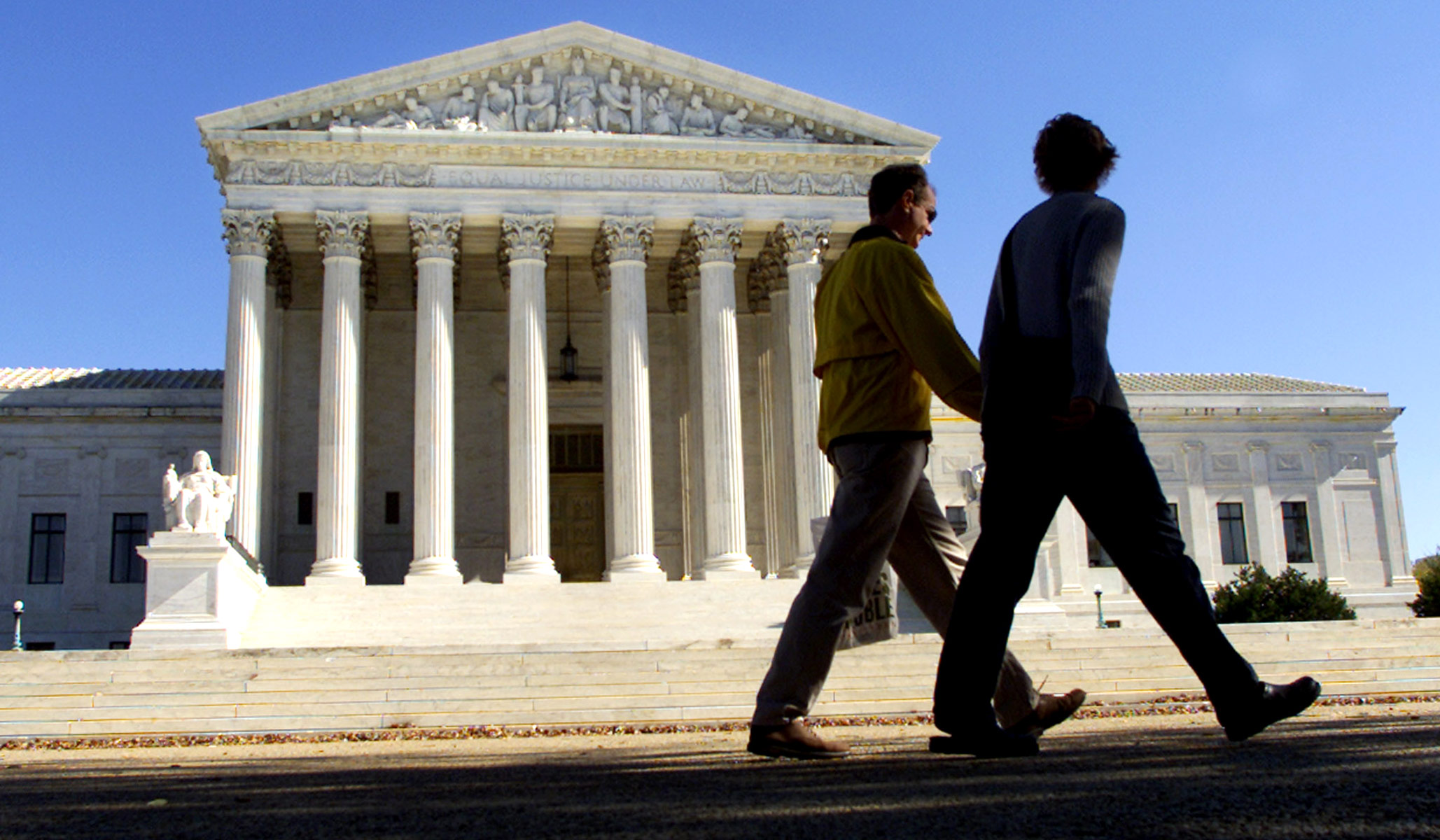
At Slate, Mark Joseph Stern tries repeatedly to cast the Supreme Court’s announcement that it will consider the case of 303 Creative v. Elenis as some sort of looming judicial attack on LGBT people. But, because it’s not, he can’t quite manage it.
Early on, Stern writes that the “grant marks a victory for the conservative campaign to undermine LGBTQ equality by granting businesses a right to discriminate.” And yet, as he is subsequently forced to admit, that’s not actually what’s at stake. “303 Creative,” he concedes later on, “is not limited to same-sex couples,” and “the question presented is not limited to the application of these laws to same-sex couples.” Rather, the issue is whether the First Amendment trumps civil-rights law in cases that are explicitly related to speech. (And, as Stern himself notes, “everyone agrees” that this one is.)
As a matter of political preference, Stern doesn’t like the idea that they might. So he tries to make the idea seem sinister:
So 303 Creative is a test case. And, in fairness to ADF, it’s a clever one, because it centers on actual speech—the creation of a website, which is undoubtedly a form of expression
Thing is, though: This isn’t some “clever” “test case” that has been snuck in by the back door. It’s a solid vehicle for the examination of a foundational legal question — no, not whether the United States intends to “relegate gay people to second-class status,” as Stern suggests in one of his more hysterical moments, but, as the Supreme Court puts it, “Whether applying a public-accommodation law to compel an artist to speak or stay silent violates the Free Speech Clause of the First Amendment.”
Clearly, Stern hates the idea that it might. And that’s his right. But he is doing his audience a profound disservice by casting the case as some sort of political showdown between religious people and gay people — which it is not — rather than as the resolution of a broader legal dispute between current federal or state law and the First Amendment. As should be obvious, if anti-discrimination laws can never be trumped by the First Amendment, then the government will be permitted to ban all sorts of speech simply by claiming that it is preventing marginalized groups from being stigmatized or humiliated within the broader culture. Can Stern really not process this idea without filtering it through his ever-evolving list of favored and disfavored identity groups?
To understand just how destructive such an approach is, consider that it transmutes the seminal speech case of the last century, Brandenburg v. Ohio, from a crucial jurisprudential inquiry into the limits of free expression under the U.S. Constitution into a political argument between the KKK and the state of Ohio. Or, as a figure such as Stern might put it, into “a victory for the conservative campaign to undermine black equality by granting the Klan and the American Nazi Party a right to promise ‘revengeance’ against blacks and Jews.”
Is that a helpful précis of the case? No, it is not.

